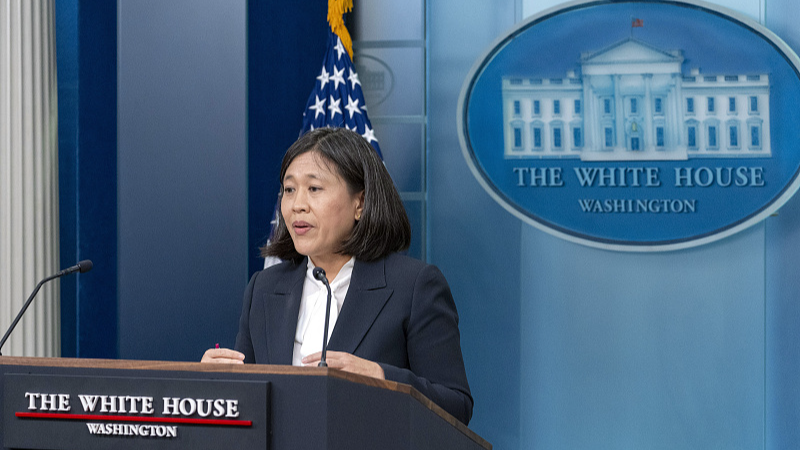BEIJING: As the Office of the U.S. Trade Representative (USTR) is expected to issue a final determination on its proposed “modifications” of the actions toward China under Section 301, U.S. economists, trade groups and international organizations have voiced concerns and expressed disappointment, warning that the imposition of additional tariffs could hurt U.S. companies and consumers.
On May 14, U.S. Trade Representative Katherine Tai announced that President Joe Biden is directing her to “take further action” on China tariffs after releasing a statutory four-year review of Section 301 tariffs. The proposed “modifications” include raising tariffs in “strategic sectors,” such as batteries, electric vehicles, semiconductors, steel and aluminum products.
In late May, the USTR issued a Federal Register notice regarding proposed tariff modifications under Section 301 and the machinery exclusion process, inviting public comment. On July 30, the USTR stated that it will continue to review all comments and expects to issue its final determination in August.
In a statement released earlier this year, the U.S.-China Business Council (USCBC), a private, nonpartisan, nonprofit organization of more than 270 American companies that do business in China, expressed disappointment in the results of the Section 301 review.
“We are disappointed with the outcome because maintenance of the prior tariffs – with no reductions – and imposition of additional tariffs ultimately make it harder for American companies to compete in the U.S. and abroad, cost American jobs, and increase prices for U.S. manufacturers and consumers during a time of ongoing inflation,” USCBC President Craig Allen said. “As USCBC requested in our public comments, we appreciate USTR’s creation of a tariff exclusion process so that U.S. companies can request needed and common-sense relief, but its scope appears narrow,” said Allen.
Jeffrey Sachs, an economics professor and director of the Center for Sustainable Development at Columbia University, told Xinhua that the new tariffs violate America’s World Trade Organization commitments, hurt consumers and raise geopolitical tensions.
In an opinion piece published earlier this year, William Alan Reinsch, Scholl Chair in International Business at the Center for Strategic and International Studies, said the real loser in this decision is the climate.
“Since we rely on China for key elements of the green transition, notably solar cells, batteries and the critical minerals that go into them, the effect of the tariffs will be to make those products more expensive and to slow down the transition that will help the United States meet its climate obligations,” said Reinsch. –The Daily Mail-CGTN news exchange item






